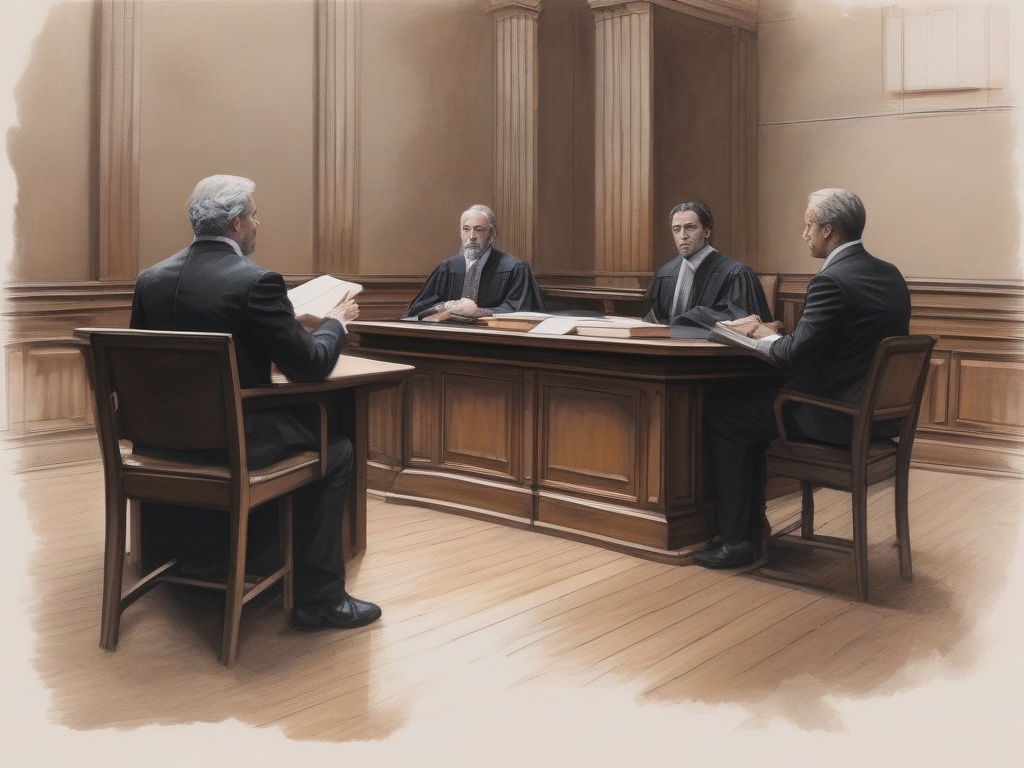
Unveiling the Power of Silence: When Your Right to Remain Silent Becomes Your Greatest Shield
Many individuals underestimate the significance of exercising their right to silence during police interrogations or court proceedings. Silence is not a sign of guilt but a tactical choice that can prevent misinterpretation, misrepresentation, or inadvertently providing information that could be used against you. Recognizing the right moment to stay silent requires awareness, confidence, and a clear understanding of your legal protections. When used wisely, silence can become an impenetrable barrier between you and potential accusations, turning the tables in your favor during complex legal scenarios.
Deciding to remain silent is not merely about refusing to answer questions but about strategic self-preservation. In high-stakes situations, every word spoken can be scrutinized, twisted, or used as evidence. The key lies in understanding that your silence can serve as a powerful statement—one that signifies caution and self-awareness.
For instance, during police interrogations, asserting your right to remain silent until legal counsel arrives is a wise decision that can prevent you from unintentionally confessing or revealing sensitive information. This approach underscores the importance of knowing your rights and using them intentionally. Moreover, in court, choosing silence over speech can prevent cross-examinations from leading you into uncomfortable or incriminating positions, thus reinforcing your defense strategy. The art of silence is about recognizing that sometimes, less is more, and restraint can be your most compelling form of defense.
In conclusion, mastering the nuanced use of silence transforms an intimidating legal landscape into a realm where your rights are actively protected. When wielded correctly, silence is not an admission of guilt but a powerful shield that can safeguard your future, preserve your dignity, and uphold your legal freedoms amid the tumult of legal proceedings.
Mastering the Art of Silence: Strategic Moments to Invoke Your Right and Protect Your Freedom
In the high-stakes arena of legal encounters, knowing precisely when to exercise your right to remain silent can be the defining factor between jeopardizing your future and safeguarding your liberties. Mastering this art requires not only awareness but also a calculated understanding of the subtle moments that can turn the tide of a legal confrontation. Strategic silence isn’t about avoiding responsibility but about wielding your rights as a shield—an intangible yet formidable barrier that guards your dignity and legal standing.
One of the most critical junctures occurs during police interrogations. Often, individuals feel compelled to answer questions in hopes of clarifying their situation, but this can be a perilous mistake. Choosing to remain silent until legal counsel arrives provides a crucial safeguard against accidental self-incrimination. It’s essential to recognize that anything said without proper legal guidance can be twisted or misinterpreted, potentially leading to charges or damaging evidence. Silence in these moments signals caution and self-awareness, emphasizing that your rights are being protected, rather than evading accountability.
Similarly, in courtroom settings, strategic silence can serve as a powerful tactic. During cross-examinations, responding with brevity or choosing not to answer certain questions can prevent you from inadvertently revealing information that could be exploited by the prosecution. This calculated restraint communicates to the court that you are confident in your defense and cautious about what you disclose. Mastering this balance—knowing when to speak and when to hold back—can be the difference between a conviction and an acquittal, transforming silence from a passive act into an active element of your defense strategy.
Silent Defiance: How to Use the Right to Remain Silent as a Tool for Justice and Self-Protection
In the landscape of legal defenses, silence often emerges as a formidable act of resilience—an assertion of control in situations where words can be manipulated or misconstrued. Silent defiance doesn’t imply surrender but signals a strategic stance rooted in self-preservation. This approach transforms the act of remaining silent from passive submission into a calculated form of resistance, empowering individuals to navigate complex legal terrains with dignity and strength.
When facing interrogations or court proceedings, the power of silence can serve as a shield against undue influence. It sends a clear message that you are aware of your rights and are choosing to exercise them thoughtfully, rather than being coerced into speaking out of fear or confusion. This conscious withholding of information is not an admission of guilt but a potent form of protest—an assertion that your words will not be used against you without careful consideration. The strategic use of silence in these moments can disrupt the prosecution’s narrative, forcing authorities to rely on evidence rather than coerced confessions or ambiguous statements.
Moreover, silence acts as a safeguard that preserves your credibility. In a courtroom, where every word is scrutinized, restraint can be your most compelling testimony. It prevents the risk of misinterpretation and maintains your integrity, especially when faced with aggressive cross-examination tactics designed to elicit concessions or admissions. By choosing when to speak and when to remain silent, you shape the narrative on your own terms, turning the legal process into a battleground where your dignity and rights are actively defended.
Ultimately, mastering the art of silent defiance involves understanding that silence can be a powerful declaration of independence, self-awareness, and resilience. It is an act of strategic resistance that, if wielded correctly, can tip the scales of justice in your favor, ensuring that your rights are not just protected but reinforced amidst the chaos of legal proceedings.
